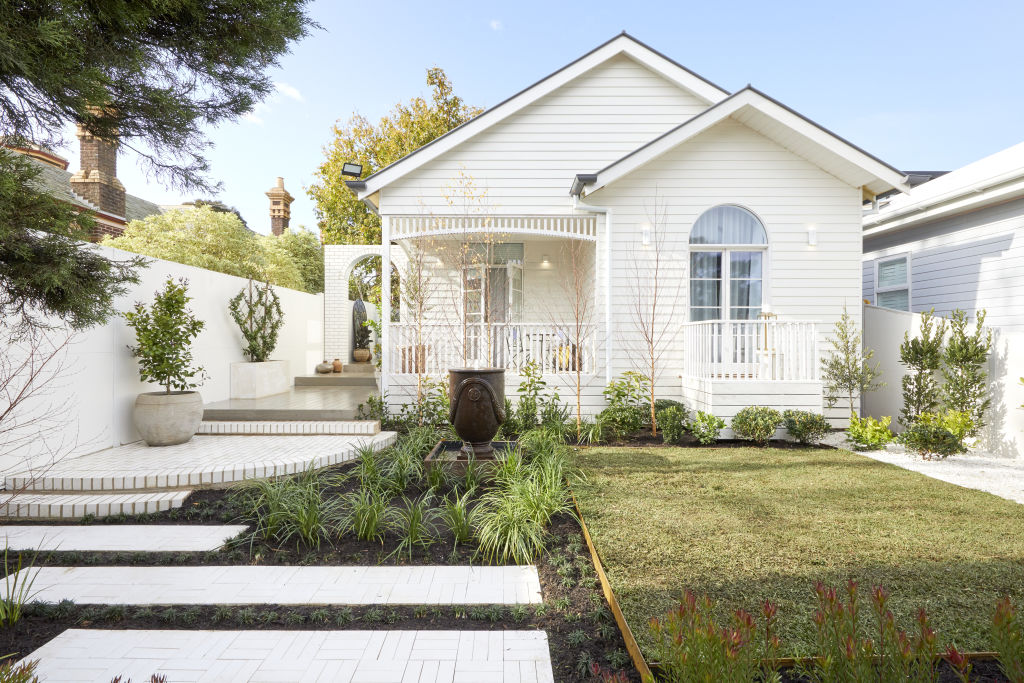Winter, spring, summer or autumn: When is the best time to sell your property?

With mild weather, gardens in full bloom and optimism often at a peak as the chill of winter fades, spring has long been favoured for residential property campaigns. But after a rollercoaster two years of COVID-19 lockdowns and booming markets, is spring still the best time to sell?
Ray White Wilston principal Alistair Macmillan believes the tide has long turned on seasonal selling.
“I’ve been doing this for 25 years and when I first started spring was considered a good time to sell,” he says. “There certainly seems to be more transactions around spring time each year and it makes sense because the weather is in its prime.”
However Brisbane-based Macmillan says that over the last 10 years spring has lost some of its currency as the ideal selling season. He has seen sellers pay more attention to market conditions, including the effects of interest rates and global events like the pandemic, before making a decision to list.

“Market conditions are having a far greater impact on our market than the weather and seasons,” he says.
Domain asked Sydney Sotheby’s International Realty agent Giorgio Koula, The Agency Port Phillip’s Michael Paproth and Macmillan what makes a good time to sell, and the general consensus is: when demand exceeds supply.
During last year’s COVID-induced buying frenzy, Koula found that every day was a good day to sell. If nothing else, the heat in the property market proved a point: the best time to sell is when there are more buyers than sellers in the market.
Macmillan agrees. “I’m not suggesting spring isn’t the time to sell but what we do see is more houses come to market in spring, so buyers have more to choose from which can have an adverse impact on prices,” he says. “If you want to maximise prices try to come to the market when there’s less competition.”
Macmillan and Paproth have both found campaigns that kick off early in the new year attract a lot of interest because demand builds up over the holidays and the supply of new stock is often limited.

Looking to sell in spring or summer?
Koula and Paproth agree if you’re selling a waterside property it can pay dividends to list when the weather is warm and dry.
“In Melbourne our winters can be wet, but our summers are the best in the country because they’re hot and dry, not hot and humid, and our waterfront comes alive over the summer months,” Paproth says.
Buyers will be less enthused about expansive views or the short walk to the beach if it’s cold and wet outside.
While Koula says a home with a beautiful established garden might be best showcased in spring for maximum impact, Paproth again relies on demand levels when advising clients.
“People always say the garden looks great in spring, but I always bring clients back to demand and supply,” he says. “An increase in supply will negate how good your trees look.”

Looking to sell in autumn or winter?
Homes in regional lifestyle locations attract good attention in the cooler months, says Paproth, with mountain regions especially suited to a winter campaign.
For vendors in Melbourne’s bayside, Paproth favours a May listing to avoid the string of big events that can play havoc with open homes.
“There’s Grand Prix, Easter, school holidays, grand finals, horse races … in most other months there’s an event, but there’s usually five weekends in May and no big events so you can have a clear run at it,” he says.
Koula says apartment owners should consider selling in autumn or winter if there is a dip in supply.
“If you’ve got an apartment, I don’t think it makes a difference what season you sell provided it gets good natural light and isn’t south-facing,” he says. “It’s the same for townhouses and small terraces. A winter sale could favour the vendor because there’s generally lower stock levels.”
Is there a time to avoid?
“The only time of the year you really want to avoid going to market is around the third week of December through to the second week of January,” Macmillan says. “That period of time definitely does tend to slow down.”
Macmillan and Koula agree that the looming federal election may also limit buyer numbers.
“We definitely see people sitting on their hands just prior to an election,” Macmillan says. “Immediately after an election the market picks up and it’s business as usual.”
We recommend
We thought you might like
States
Capital Cities
Capital Cities - Rentals
Popular Areas
Allhomes
More










